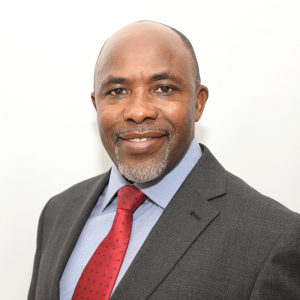Summit of the Future: Revamping Multilateralism to Meet Current and Future Challenges
Eswatini’s leadership continues to shine as the country prepares for the Summit of the Future, aimed at strengthening international cooperation
Last week, while speaking at the Central Bank of Eswatini’s 50th anniversary commemoration in Ezulwini, His Majesty King Mswati III referenced an event that took place nearly 20 years ago. In 2005, Eswatini hosted an important meeting of the African Union that gave birth to the Ezulwini Consensus – The African Common Position on the Reform of the United Nations.
The Ezulwini Consensus was formally adopted by the 7th Extraordinary Session of the African Union in Addis Ababa the same year. The document gave an early expression to the quest for a reformed United Nations, the world’s premier forum for multilateralism and global cooperation.
This quest of enhancing global cooperation to better meet shared challenges, ensuring equitable representation, continues to date. What has changed is the urgency with which we must now act.
The UN Secretary-General Mr. Antonio Guterres has often stated that humanity stands at a crucial juncture—facing a choice between a breakdown or a breakthrough. On the one hand, the world faces what has been called a ‘polycrisis’ – a series of related global risks with compounding effects which include rising inequalities and cost of living, unemployment, debt distress, effects of climate change, catastrophic wars, eroded trust among nations, etc. On the other hand, these very crises provide an opportunity – and motivation – for nations to come together in a new and ambitious way to make real the quest for a world order that is fit for todays and future challenges. What is the Summit of the Future and why is it important?
Summit of the Future – A generational Opportunity and Responsibility
The Summit of the Future is set for September at UN headquarters. Convened by the UN Secretary-General and facilitated by Namibia and Germany, it is poised to forge a new international consensus that deeply resonates with the core concerns of the Ezulwini Consensus, focusing on equitable development, peace, and effective global governance. It is an opportunity to enhance cooperation on critical challenges and address gaps in global governance, while accelerating efforts to meet existing international commitments, including to the Sustainable Development Goals (SDGs) and the United Nations Charter. The main purpose is to strengthen international cooperation and restoring trust in the multilateral system while enabling us to respond effectively to new threats and opportunities for present and future generations.
An Idea Whose Time Has Come – With Urgency
Eswatini and the African Union can be proud of their association with the early call for global reforms. Events in the intervening 20 years have made ever more obvious why the world needs a new, fit-for-purpose, global cooperation compact. The delayed action has no doubt made the task more urgent and difficult, but not impossible.
The main outcome of the SOTF Summit is expected to be the endorsement by member States of a document aptly named The Pact for the Future. The document has been under negotiation among Member States since late last year and the current draft is organised around five pillars or chapters.
The first, on Sustainable Development and Financing for Development (FfD), calls for a surge in financing for the Sustainable Development Goals, and additional steps to ensure sustainable financing in line with the Addis Ababa Action Agenda of the Third International Conference on Financing for Development. It emphasizes urgent action on climate change and advocates for investments in renewable energy and technology for a green economy.
The second is on International Peace and Security and discusses fostering global cooperation and diplomacy to address threats of war and conflicts and ensure stability, advocating for inclusive policies that prioritize social equity and justice as a foundation for peace.
The third is on Science, Technology, and Innovation, and Digital Cooperation and focuses on leveraging advancements in science and technology to ensure open, free, secure, inclusive and human-centred digital future that reflects universal human values and protect the planet. This chapter will be accompanied by an annex called the Global Digital Compact.
Chapter four, on Youth and Future Generations, recognises that decisions made today have consequences for the youth of today and of the future. It emphasizes the responsibility to shape a sustainable future that avoids foreseeable harm and advocates for inclusive policies that prioritize the needs and aspirations of young people and future generations. It will have an annex titled Declaration on Future Generations.
Finally, chapter 5 is on Transforming Global Governance, and emphasises collaborative approaches to address global challenges and ensure equitable representation and decision-making. It spotlights reforming the intergovernmental organs of the United Nations, including the Security Council, so that they can deliver on their mandates in a changing world. Importantly for developing countries, it addresses the need for more equitable and effective global economic governance, including through reform of the international financial architecture.
Collectively, the five chapters of the Pact of the Future and its annexes closely mirror the Ezulwini Consensus's calls for reform. As we count down to the Summit of the Future and anticipate its outcome, we must draw pride and inspiration from our historical role and foresight as hosts of the meeting that crafted the Ezulwini Consensus. We must also own this important summit.
Let us carry forward that legacy and advocate for a global system that is just, equitable, and capable of meeting today's challenges and those of the future.
Together, we must transform our challenges into opportunities for a sustainable and prosperous tomorrow.
Speech by


















